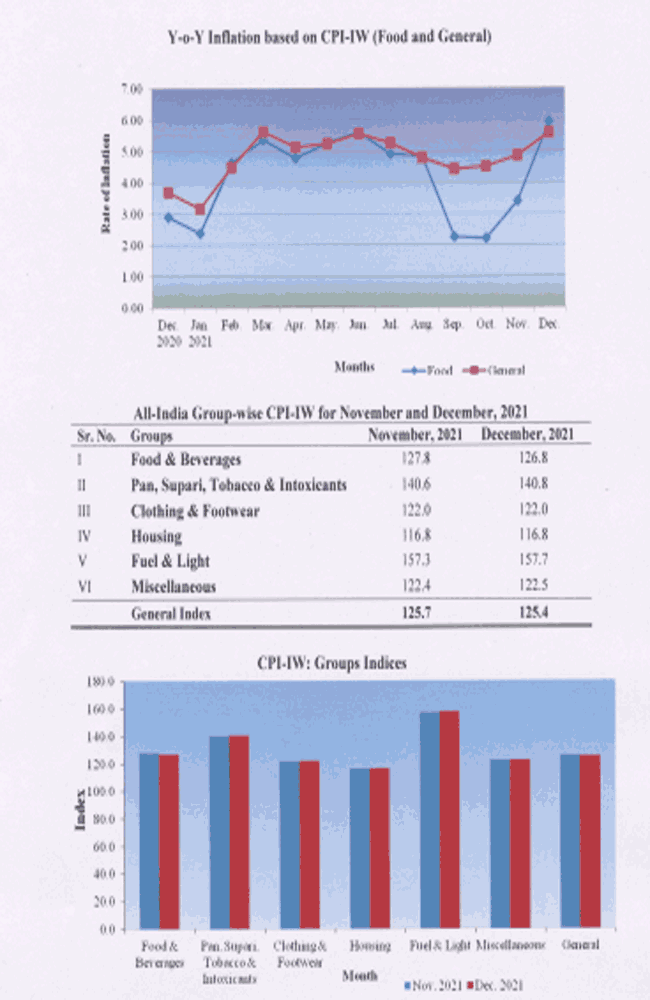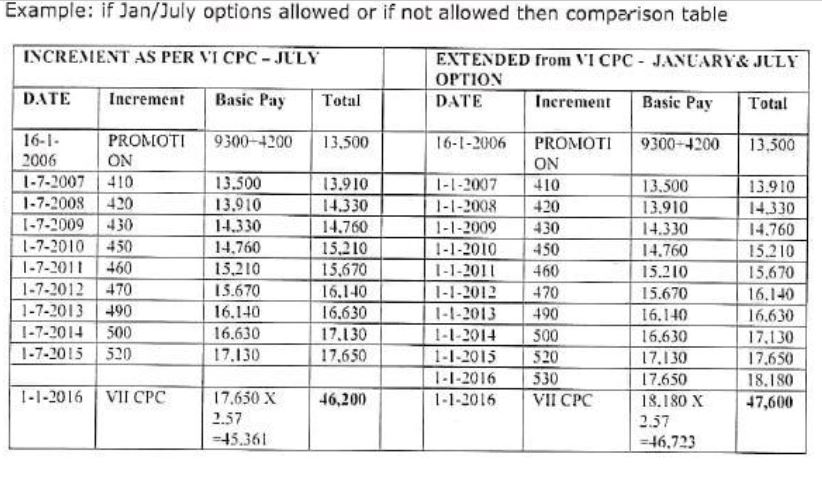PREVENTIVE MEASURES TO CONTAIN THE SPREAD OF NOVEL CORONAVIRUS (COVID-19) ATTENDANCE OF CENTRAL GOVERNMENT OFFICIALS REGARDING
Extension of Annual increment to the Central Government Employees on January and July from 01-01-2006 as a special case for settling an outstanding 6th CPC anomaly.
Shiva Gopal Mishra
Secretary
National Council (Staff Side)
No.NC-JCM-2022/DOPT (Inc)
January 25 , 2022
The Secretary (P)
Government Of India
Department of Personnel and Training
North Block.
New Delhi,
The Secretary,
Government of India
Department of Expenditure
North Block,
New Delhi.
Sub : Extension of Annual increment to the Central Government Employees on January and July from 01-01-2006 as a special case for settling an outstanding 6th CPC anomaly.
Ref:- 1) DN1 under rule 10 of the CCS (RP) Rules, 2016
2) Rule 10 of CCS (RP) Rules, 2008
3) MoF/DOE O.M. No:4-21/2017-IC/E.IIIA Dtd:28/11/2019
Dear Sir,
This Office is receiving representations from individual employees as well as from the employees organisation of various Ministries / Departments with regard to an unsettled anomaly in the date of increment which has cropped up after the implementation of 6th CPC recommendations. Details of the case with illustration is given below for your favorable consideration as a onetime measure.
During the year 2006 prior to publication of 6th CPC recommendations several promotions MACP / appointment took place in the month of January-2006. Accordingly individuals who have been promoted/MACP granted in Jan-2006 were supposed to get next increment in Jan’2007. But due to fixation of uniform annual increment fixed as 1st July of the every year by 6th CPC, The individuals got next increment in July-2007instead of Jan-2007 i.e. after 17 months ( more than 12 months) Instead of 12 months.
In order to address the such 6th CPC anomalies, vide ref(3) DoE has given an option of annual increment twice in a year 1.e. Jan & July vide CC5(RP) rules,2016 and FR&SR part-I w.e.f. 01/01/2016. But for the cases of MRCP/Promotion/Appointment between 2-jan to 3O June 2006 to 2015 whoever was granted the benefit of Entry Pay are not addressed. This batch got its first Increment after completion of 13 to 17 months service Instead of 12 months. But in same years i.e, between 2006¬2015 the individuals got MACP/Promotion/ Appointment between 2nd July to 31 December got the benefit July increment within the year. This situation is resulting the financial loss, incremental seniority loss and terminal benefits loss to the retiring employees.
In view of the above position we propose the following two option for the favorable consideration of the DOP&T and Department of Expenditure for issuing of necessary government orders.
Option 1:
The above illustration is self-explanatory that the individual if given increment in Jan/July-2007 will get next increment in reasonable period. Therefore, such individuals may be given an increment on next Jan/idly to rectify the anomaly risen w.e.f. 1/1/2006 onwards, The issue may be considered by amending the effect date of ref(3) OM retrospectively from 01/01/2006 in place of existing 01/01/2016
Or
Option 2:
Option may be given to those whose date of increment fallen beyond one year i.e. on 2-jan to 30 th June 2006 to 2015 entry pay due to 6th CPC uniform increment (July of every year) to switch over from 6th CPC to 7thCPC on 01/01/2016, so that their DNI can be January as per the guidelines of ref (3) M0F/DoE memorandum.
Sir, in case any further discussion is required then a meeting may be convened with the Staff Side for clarifying the doubts if any. Awaiting for your favorable response please,
Thanking you sir
Yours Sincerely
(SHIVA GOPAL MISHRA)
Secretary
















 →
→








